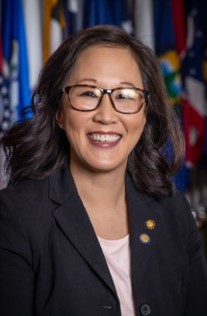WEBINAR: COVID-19 and Beyond: Telepsychiatry Best Practices and Regulatory Priorities
Now is the time for telebehavioral health. The COVID-19 global healthcare crisis has meant a remarkable evolution for the already rapidly changing telehealth industry.
In recent weeks, every state, county and community across the United States has experienced a greater prevalence of mental health conditions. As the need for mental health rises, the push for virtualizing interactions is exploding, resulting in a major boom in telebehavioral health.
Balancing health privacy, health information exchange, and research in the context of the COVID-19 pandemic
The novel coronavirus disease 2019 infection poses serious challenges to the healthcare system that are being addressed through the creation of new unique and advanced systems of care with disjointed care processes (eg, telehealth screening, drive-through specimen collection, remote testing, telehealth management). However, our current regulations on the flows of information for clinical care and research are antiquated and often conflict at the state and federal levels. We discuss proposed changes to privacy regulations such as the Health Insurance Portability and Accountability Act designed to let health information seamlessly and frictionlessly flow among the health entities that need to collaborate on treatment of patients and, also, allow it to flow to researchers trying to understand how to limit its impacts.
Click below to read more.
Coronavirus Disease 2019 (COVID-19) and Mental Health for Children and Adolescents
States and localities are taking unprecedented steps to respond to the public health threat posed by the coronavirus disease 2019 (COVID-19) pandemic. Among the measures intended to promote social distancing, many schools have been closed and classes shifted to home-based distance-learning models. The first school closures began in mid-March 2020 and some states have already closed schools for the rest of the academic year. Nearly all of the 55 million students in kindergarten through 12th grade in the US are affected by these closures. School closure substantially disrupt the lives of students and their families and may have consequences for child health. As such, we must consider the potential associations school closures have with children’s wellbeing and what can be done to mitigate them.
Click below to read more.
BHCOE Telehealth Standards Checklist
The standards for telehealth accreditation includes guidance for areas of review for accreditation applicants. All accreditation activities involve narrative, written description and explanation of policies and procedures, documentation, documentation of usage and demonstration.
Webinar Presentation: How to Grow Your Practice Through Telehealth with Reimbursement Considerations
As the COVID-19 outbreak continues to surge, physicians and other healthcare providers are moving towards telehealth and remote patient monitoring to reduce in person contact and to stop the spread of the virus. To support physicians and other healthcare providers, CMS has also eased restrictions on telehealth reimbursements.
Join us for a panel discussion with Emily Yoder, an analyst with CMS and Phil Boucher, MD, a practicing pediatrician in Nebraska, regarding the use of telehealth to drive growth in his practice and how CMS reimbursement changes might affect those strategies in the future.
Presentation Slides can be found at the bottom of the page.
Speakers:
Phil Boucher, MD
 Lincoln Pediatrics Group
Lincoln Pediatrics Group
Phil Boucher, MD, is a board-certified pediatrician in private practice at Lincoln Pediatrics Group in Lincoln, Nebraska. Phil is a husband and father of five young children. He helps private practice physicians build thriving practices and fulfilling lives through practical strategies paired with mindset shifts within his physician-only facebook group, The Private Practice Accelerator (privatepractice.show/join). He shares his strategies and interviews other thought leaders on his podcast, Private Practice Matters.
Andi Hila
Director of Strategy Consulting, Updox 
Andi Hila is Director of Strategy Consulting at Updox, where he also previously led product efforts for Patient Engagement solutions. Prior to Updox, Andi served in Product Management roles for Explorys and IBM Watson Health, with a focus on data analytics products for the population health, provider, and payer markets. Andi has a B.S. in Health Information Systems and Economics from The Ohio State University.
Emily Yoder
Centers for Medicare and Medicaid Services, Centers for Medicare/Hospital and Ambulatory Policy Group/Division of Practitioner Services
Emily Yoder is an analyst in the Division of Practitioner Services (DPS) in the CMS Center for Medicare. She has worked on Medicare Physician Fee Schedule rate setting and policy development since 2015, including primary care, evaluation and management visits, communication technology based services, and Medicare telehealth. She holds graduate degrees from the University of Chicago and, as a Fulbright Fellow, from the University of Warwick, in the United Kingdom.
The Digital Revolution in Behavioral Health
Technological innovations in psychiatry are revolutionizing health care and are an important strategy for managing mental health care needs in the United States, particularly, in rural and underserved areas. To improve access to care, the University of Rochester (UR) has developed a digital behavioral health model of care. This article describes that program and reviews the evolution of digital health care in psychiatry and the pros and cons of this form of delivery of services.
Telemedicine Infectious Diseases Consultations and Clinical Outcomes
Telemedicine use is increasing in many specialties, but its impact on clinical outcomes in infectious diseases has not been systematically reviewed. We reviewed the current evidence for clinical effectiveness of telemedicine infectious diseases consultations, including outcomes of mortality, hospital readmission, antimicrobial use, cost, length of stay, adherence, and patient satisfaction.
WEBINAR: COVID-19 Impact: Addressing Capacity and Cashflow with Virtual Care
COVID-19 has highlighted the need for virtual care strategies and has set the tone for future care as it helps to solve many of the current and future challenges health systems face with capacity, value-based initiatives, and cashflow.
Remote Patient Monitoring solutions are maximizing care delivery value by delivering quality care beyond just reducing the number of patients in healthcare systems. Consumers are becoming accustomed to the ease, convenience, and benefits remote offerings deliver.
Join experts across the provider, regulatory, and technology space for a discussion on:
- How health systems are currently responding to COVID-19 with remote monitoring;
- How remote patient monitoring (RPM) can and will be used with telehealth services in the virtual care model of the near future;
- How the current and future policy and reimbursement changes will impact RPM and telehealth delivery;
- How health systems are using technology to create a strong revenue stream amidst financial uncertainty;
- Health systems’ immediate and long-term plans for RPM post-COVID-19 and ongoing demonstrations of scale and ROI.

Peter Rasmussen
Chief Clinical Officer Cleveland Clinic
American Well Joint Venture Physician at Cleveland Clinic
and former Medical Director of Distance Health
Peter A. Rasmussen, MD, is the Chief Clinical Officer of the Cleveland Clinic + American Well Joint Venture and the Medical Director of Digital Health at the Cleveland Clinic in Cleveland, Ohio. Rasmussen is also a practicing physician at the Cleveland Clinic. As Medical Director of Digital Health, he is charged with guiding the Clinic’s overall digital health strategy and implementation of their digital medicine portal “Express Care Online” which is the Clinic’s virtual portal for on-demand, scheduled and new remote consultation services.

Robert Jarren
Managing Member, Omega Concern
Robert Jarrin is the Managing Director of the Omega Concern and is based in Washington, D.C.. Jarrin’s areas of responsibility include federal wireless health policy, healthcare legislative affairs, FDA regulatory oversight of converged medical devices, FCC mobile health (mHealth) efforts, CMS telehealth and RPM reimbursement and ONC regulation of health information technology. Externally, Jarrin serves on the Innovation Advisory to the American College of Cardiology. He is an advisory member of the Digital Medical Payment Advisory Group for the American Medical Association. And, he is an adjunct professor at George Washington University and Georgetown University in D.C..

Drew Schiller
Co-Founder and CEO, Validic
Drew Schiller co-founded and serves as the Chief Executive Officer and Board Director at Validic, the leader in technology for personal health data and remote patient monitoring. Drew is a Board Member of the Consumer Technology Association (CTA) Health & Fitness Technology Division and a member of the CTA Board of Industry Leaders. Drew also contributes to advancing the industry through CTA policy efforts and his involvement with the CTA Health & Fitness Technology Standards. Drew serves on the Board for the eHealth Initiative (eHI) and participates in the eHI Policy Steering Committee.
The Current State Of Telehealth Evidence: A Rapid Review
Policymakers and practitioners show a continued interest in telehealth’s potential to increase efficiency and reach patients facing access barriers. However, telehealth encompasses many applications for varied conditions and populations. It is therefore difficult to draw broad conclusions about telehealth’s efficacy. This rapid review examines recent evidence both about telehealth’s efficacy by clinical area and about telehealth’s impact on utilization. We searched for systematic reviews and meta-analyses of the use of telehealth services by patients of any age for any condition published in English in the period January 2004–May 2018. Twenty systematic reviews and associated meta-analyses are included in this review, covering clinical areas such as mental health and rehabilitation. Broadly, telehealth interventions appear generally equivalent to in-person care. However, telehealth’s impact on the use of other services is unclear. Many factors should be carefully considered when weighing the evidence of telehealth’s efficacy, including modality, evidence quality, population demographics, and point-in-time measurement of outcomes.
Webinar Presentation: Telehealth during COVID-19: New strategies on how physicians are addressing the outbreak
In the wake of the current situation with COVID-19, physicians and other healthcare providers are rapidly adopting workflows for telehealth to triage incoming patients to determine and evaluate risk, reduce non-emergent office visits, remotely monitor patients and more.
Join us for a panel discussion on implementing telehealth workflows to meet the need for quick change and continuity of care. Presenters include a CTO for a county health system, a physician, and a provider of telehealth technology.
Presentation slides are at the bottom of this page.
Speakers:

Mark Filiault - CIO, CT Orthopaedic Specialists
Mark Filiault is the Chief Information Offficer at CT Orthopaedic Specialists, one of the largest and most respected orthopedic groups in New England.
 Andi Hila - Director of Strategy Consulting, Updox
Andi Hila - Director of Strategy Consulting, Updox
Andi Hila is Director of Strategy Consulting at Updox, where he also previously led product efforts for Patient Engagement solutions. Prior to Updox, Andi served in Product Management roles for Explorys and IBM Watson Health, with a focus on data analytics products for the population health, provider, and payer markets. Andi has a B.S. in Health Information Systems and Economics from The Ohio State University.
Cathy Kuhn, PharmD, BCACP, FAPhA - Director of Strategy Consulting, Updox
- Director of Strategy Consulting, Updox
Cathy Kuhn, PharmD, BCACP, FAPhA, is director of Strategy Consulting for Updox and serves as “voice of the clinician” for Updox solutions and services. She is past president of the Ohio Pharmacists Association and current president of the American Pharmacist’s Association’s (APhA) Academy of Pharmacy Practice and Management and APhA board member.
Eric Weidmann, MD - Chief Medical Officer, eMDs
- Chief Medical Officer, eMDs
Eric Weidmann, MD, is a family medicine specialist in Austin, TX and has been practicing for 32 years. His significant medical experience includes practice management, managed care contracting, cost of care oversight, healthcare networks, liability mitigation, device interfaces and fault tolerant systems. A graduate of University of Texas Southwestern Medical School, Eric is passionate for ACCME accredited medical education and primary care-based research via Primary Care Network (PCN) and is currently the Board Chairman of PCN.
